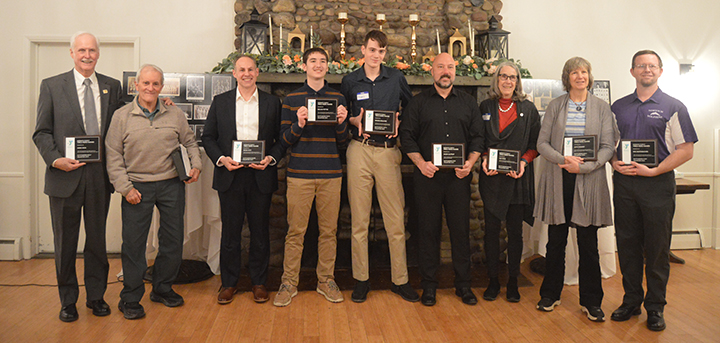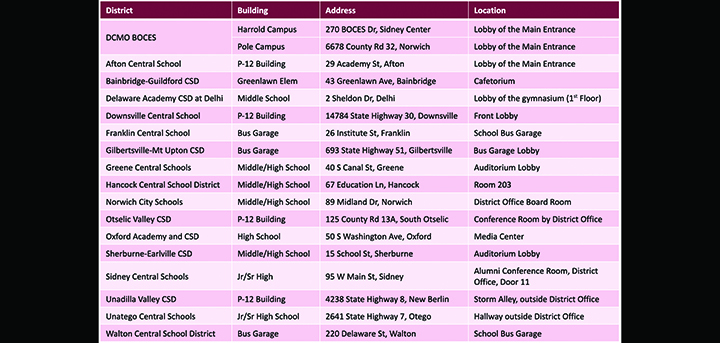Alternative energy, jobs and NYRI among the hot topics at Lobsterfest
NORWICH – On Sunday, the Canasawacta Country Club pavilion was filled with politicians and local residents wanting to discuss the issues most important to them.
Among the crowd at the county Republican committee’s annual Lobsterfest fundraiser were Assemblyman Cliff Crouch (R-Guilford), Assemblyman Peter Lopez (R-Schoharie), Assemblyman William Magee (D-Nelson), and Senator Thomas Libous (R-Binghamton).
Topics of discussion this year included agricultural issues, business incentives and the fight against <a href="http://www.evesun.com/topics/news/NYRI/">NYRI</a>’s power line.
Local Farm Bureau President Bradd Vickers discussed some of the potential agricultural issues with some of the politicians who were on hand. Vickers has been looking for support for his plan to place a methane digester near the Chenango County Correctional Facility. The digester would be able to heat and provide electricity for the jail using manure from local farms. He also wants the county to explore sources of alternative energy, such as ethanol aspects, using rapeseed, grasses and willows that can be grown on a marginal amount of land.
Vickers seemed to find support with Lopez. “The district I serve, the 127th, is rural. In my mind, agriculture is a vital part of it,” Lopez said. The assemblyman explained his opinion that alternative energy sources needed to be examined on the national, state and regional level.
Lopez said because the banking industry is leery of investing in alternative energy, rural development needs to help to get projects up and running.







Comments